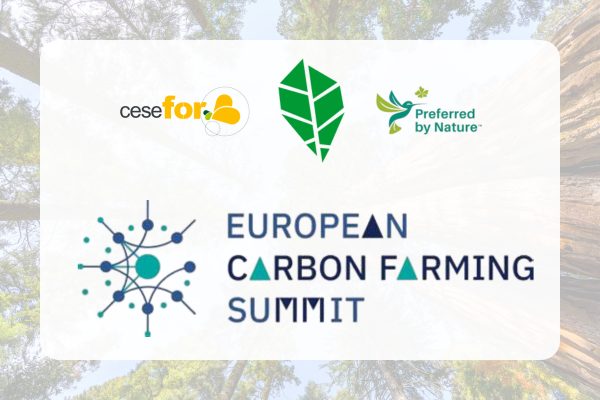The SMURF team is proud to participate in the 2nd Carbon Farming Summit, a key event bringing together policymakers, researchers, industry leaders, and land managers to drive carbon farming from concept to real-world implementation. The event focuses on carbon farming practices, monitoring and verification tools, reward mechanisms, and cross-cutting topics.
As part of the summit, our team will take part in the parallel session “Low Hanging (Tree) Fruit – Reaping Forest-Based Carbon Removal Potential, Identifying Challenges and Gaps to Open Doors to Forest Management Solutions.” Our primary objective is to provide recommendations to the European Commission regarding Improved Forest Management (IFM) within the framework of carbon farming. Our partners Cesefor Foundation and Preferred by Nature will share this session with Anew Climate, Caritas, Climate KIC, I4CE, Carbon Capture Company and ECS Climate Solutions.
SMURF is at the forefront of developing methodologies that empower forest owners and organizations to engage in sustainable forest management. Our project is particularly focused on Closer-to-Nature Silviculture (CNS) as a best practice for carbon farming, ensuring that forest management strategies go beyond carbon sequestration to enhance biodiversity, adapt forests to climate change, and promote rural development.
With approximately 60% of Europe’s forests privately owned—many in small parcels—engaging small forest holders is essential for maximizing IFM activities. The SMURF project will develop two methodologies (one for ARR and the other for IFM project activities) that seek to balance scientific robustness with market viability, ensuring that forest owners can implement sustainable practices effectively. Our approach considers key factors such as baseline assessment, monitoring periods, additionality, sustainability criteria, and risk management, aligning with the EU Carbon Removal Certification Framework (CRCF).
Beyond carbon sequestration, SMURF emphasizes the valorization of ecosystem services, addressing environmental, social, cultural, and economic benefits. Our innovative methodology includes the BIO+ label, integrating biodiversity enhancement into carbon credits, and reinforcing the importance of sustainable forestry in the voluntary carbon market.
Through our contributions at the 2nd Carbon Farming Summit, SMURF aims to bridge the gap between policy and practice, ensuring that Improved Forest Management plays a central role in Europe’s transition towards sustainable land use and carbon removal. By fostering collaboration and innovative solutions, we are committed to shaping a resilient, biodiversity-rich future for European forests.


